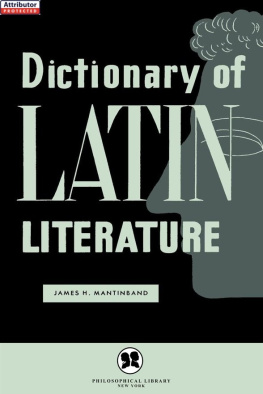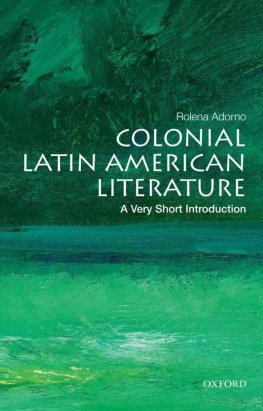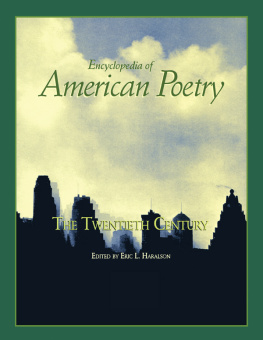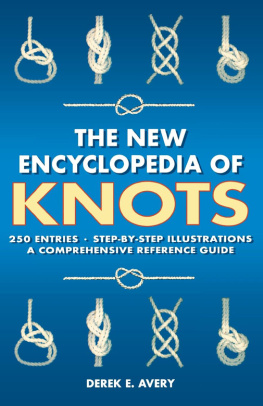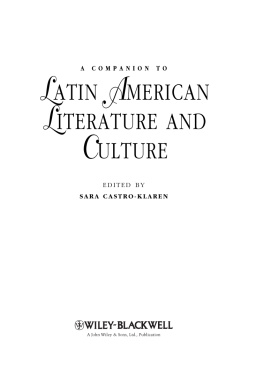| The Encyclopedia of Latin American Literature contains entries on writers, works and topics relating to the literature of Latin America, including survey articles on all the continent's individual countries. The selection of entries was made by the editor in consultation with the Advisers (listed on page xiii). |
| The encyclopedia is quite large but consists of only one volume. Therefore the criteria used are of the utmost importance since there is very little room for mistakes. In undertaking this truly daunting task any editor who is also a Latin Americanist is forcefully reminded of Borges's parable about cartographers and their successive maps of the same empire which grew and grew until the final version was the same size as the empire itself. It is not possible to provide a faithful synopsis of anything and certainly not of anything as vast, protean and contentious as the literature of an entire continent. Nevertheless since those who are new to the field must start somewhere, the task has to be undertaken, and in doing so the following points have been taken into account. |
| The first point an editor must note is the work of others in the same or related fields since there is now a proliferation of works of reference in English, Spanish and Portuguese on the literature and (increasingly) the culture of Latin America. Granted that this particular volume will not be sitting alone on a shelf, in constructing it the editor has had to bear in mind what has already been done, with a view to filling perceived gaps, noting new trends while avoiding fashionable ephemera, incorporating new areas of academic interest and reviving an interest in older ones, which for one reason or another have been neglected. And chiefly it is the past that has been neglected in the case of this continent, partly owing to a veritable fixation by publishers, critics and readers alike with the works of authors of the so-called Boom. Consequently this encyclopedia participates in the task of re-igniting an interest in the literature of the continent's past and also in stimulating interest in that of some of the smaller countries of the region such as Ecuador and Bolivia. Other points that have been taken into consideration are 1) the increasing importance of writing by Hispanic minorities in the US, and 2) the literature of the Francophone Caribbean since, not before time, scholars are ignoring the diversity of language in the literary production of the Caribbean in order to explore those common features that are the legacy of European colonialism; also 3) the encyclopedia seeks, though this is now no novelty even in the relatively staid world of works of reference to give prominence to the work of women writers, of the past as well as contemporary ones. It should be remembered, however, in both this and other contexts, that this work is not a dictionary of writers, so the women authors included form a selection. Comprehensiveness lies beyond the scope of this volume, and to find it readers must consult more specialized works. |
| The entry for each writer consists of a signed critical overview of the writer's literary work written by an expert in the field; a brief biographical sketch of the subject; a |
|


